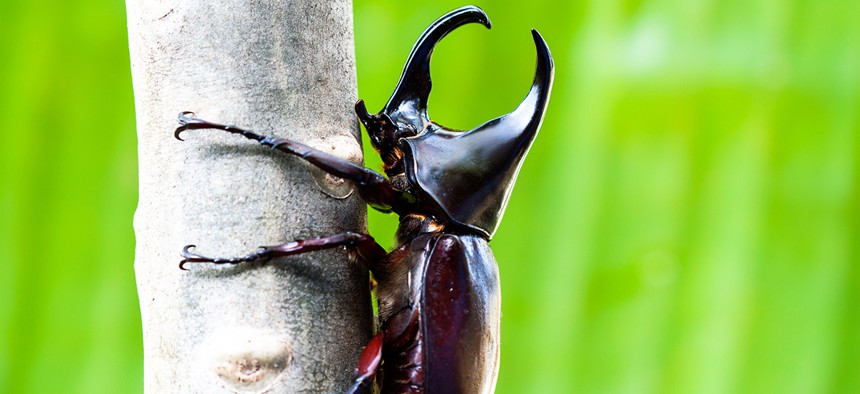Inside DARPA's Plans to Use Insects for Good

enterphoto/Shutterstock.com
The Defense Department is hosting a proposer's day for "insect allies."
The Pentagon is taking a bet that insects could be the best defensive allies against crop death.
The Defense Advanced Research Projects Agency wants help developing a system in which bugs deliver viruses to mature plants—fortifying those plants against external factors such as pests—within just one growing season.
DARPA's Biological Technologies Office is hosting a Proposer's Day for its "Insect Allies" program on Nov. 18 in search of interested researchers, who will be tasked with building out this network of plant viruses, herbivorous insects and target crops that would take in the virus, which in turn would transform the genetic makeup of a mature plant, according to a DARPA release.
» Get the best federal technology news and ideas delivered right to your inbox. Sign up here.
These "insect allies" are intended to help counter "environmental and biological threats to crop plants," such as "pathogens, pest, drought and salinity."
The program has three discrete parts: the first is to create a plant virus that can target specific plant species, the next would identify ways in which insects could transmit that virus, and the third would introduce traits to mature plants.
Currently, the best way to protect plants from disease is to selectively breed them to be resistant, a process that "typically involves 5 to 7 years of work" of identifying the specific protective genes and then trying to propagate them, according to the DARPA release.
“Genetic modification of plants has historically been done only to plant embryos inside of laboratories using tissue cultures,” Blake Bextine, a DARPA program manager for Insect Allies, said in a DARPA release. "Transforming mature plants en masse" could help with future agricultural breakthroughs, he said.





